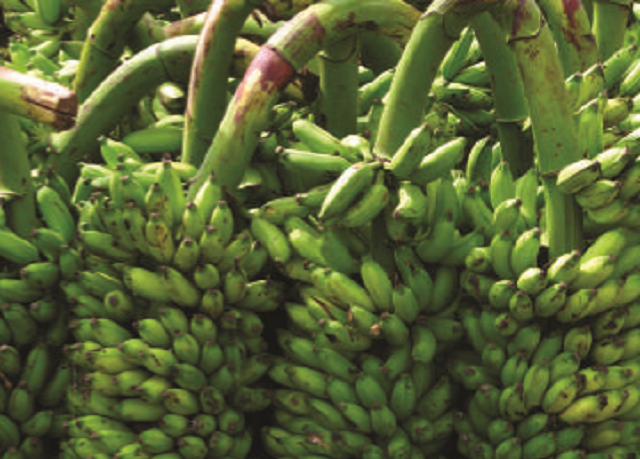
Festive season and prolonged drought push prices high
This year’s Christmas may not be merry as many could hope as prices for specific basic commodities increases ahead of the big day, The Independents analysis shows.
The price of sugar has increased from Shs 3, 200 to Shs 5,000 per kilogramme since September, representing about 56 % increase while the price of a 12-litre pack of cooking oil has been increased from Shs53, 000 to Shs55, 000 during the same period.
Similarly, the price of maize flour has increased from Shs1, 800 to Shs 2,500 per kilogramme, with the price of a bunch of banana increasing from Shs18, 000 to Shs22, 000 during the same period.
Business captains told The Independent that a combination of factors has been responsible for the price increases this festive season.
Kenneth Barungi, the assistant general manager at Kakira Sugar Limited told The Independent in a recent interview that sugar firms are producing the sugar product at diseconomies of scale that has resulted to a surge in production costs and consequently leading to a surge in prices.
He said Kakira Sugar Limited is producing at only half of its full capacity because of cane shortage as result of poaching.
According to the Uganda Sugar Manufacturers’ Association (USMA), the country’s three main sugar processors- Kakira Sugar Works, Sugar Corporation of Uganda Ltd and Kinyara Sugar Works-witnessed a reduction in sugar production from 178,761 tonnes in the first half of 2015 to 154,501 tonnes this year, representing a 15.7 % decline.
Roy Agong, the chief executive officer for the Uganda Oil Seed Producers and Processors Association (UOSPA), said there is an increased demand for cooking oil amid reduced supply from Uganda.
Agong also cites low productivity of raw materials due to long dry spells that hit most parts of the country leading to reduction in cooking oil supply by over 20% this year.
The data from the Ministry of Agriculture, Animal Industries and Fisheries shows that the country’s demand for edible oil stands at 120,000 tones against total production capacity of 40,000 tones leaving a deficit of 80,000 tons annually. The deficit is filled up with imports from Malaysia, Indonesia, Kenya and Tanzania.
Out of the locally produced oil, 75 % is consumed locally, and the rest is exported to Rwanda, South Sudan, Burundi and parts of Tanzania.
 The Independent Uganda: You get the Truth we Pay the Price
The Independent Uganda: You get the Truth we Pay the Price


